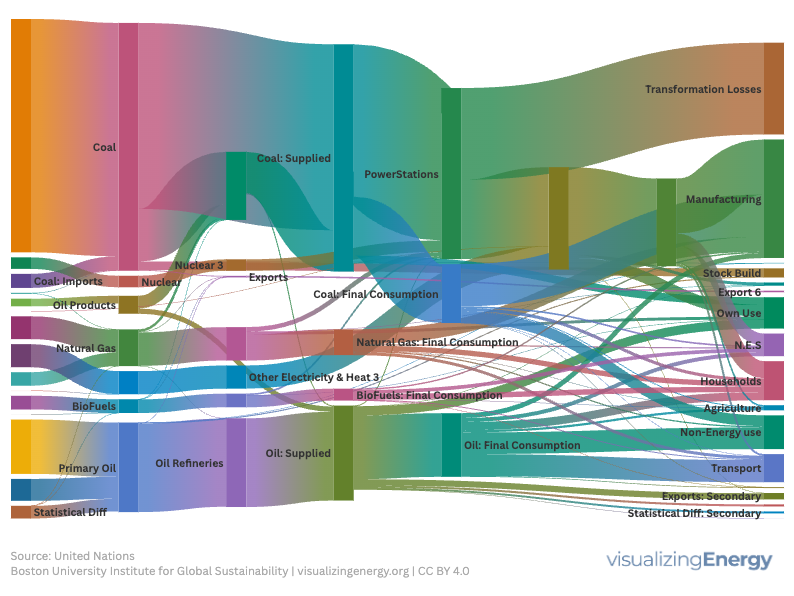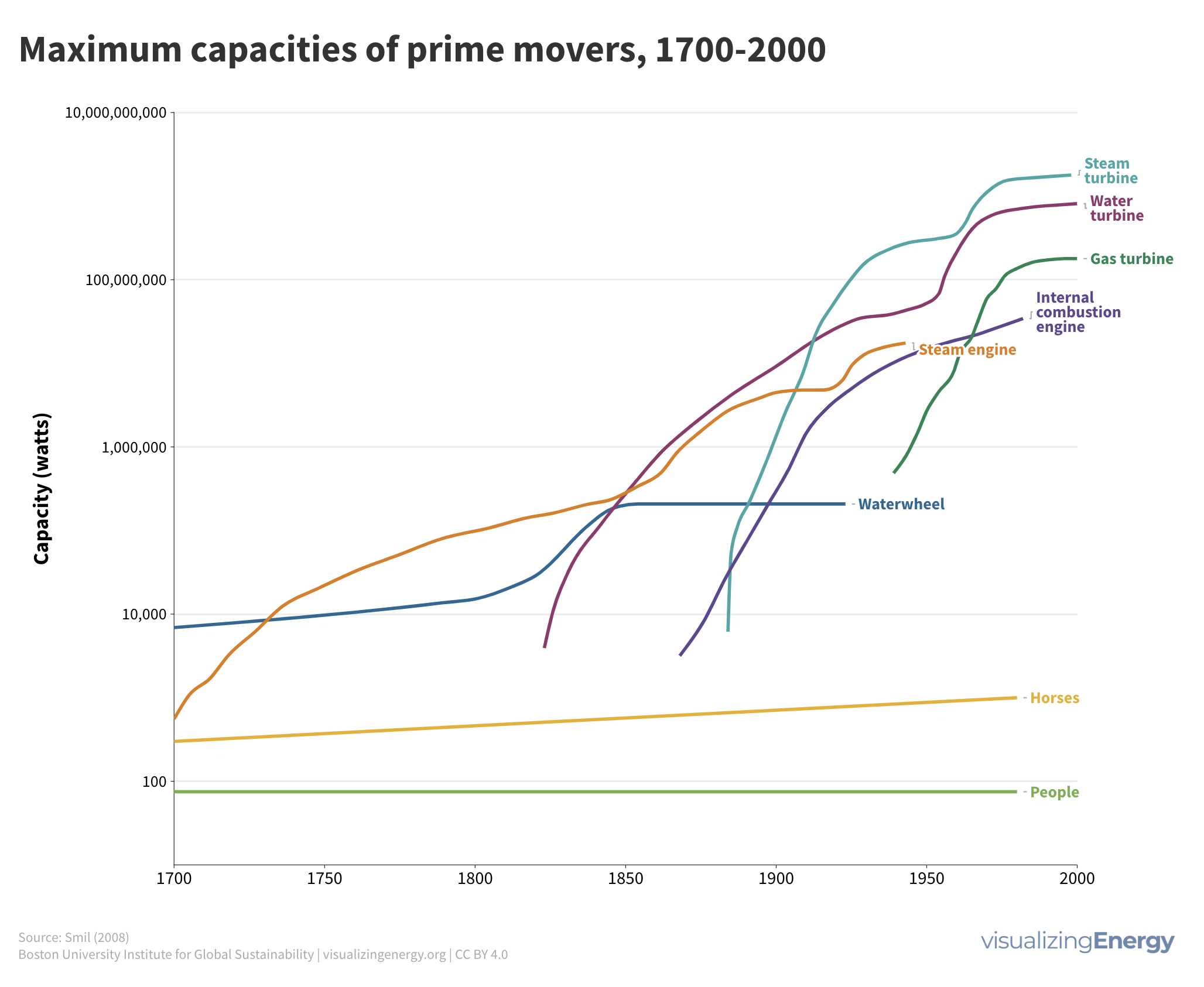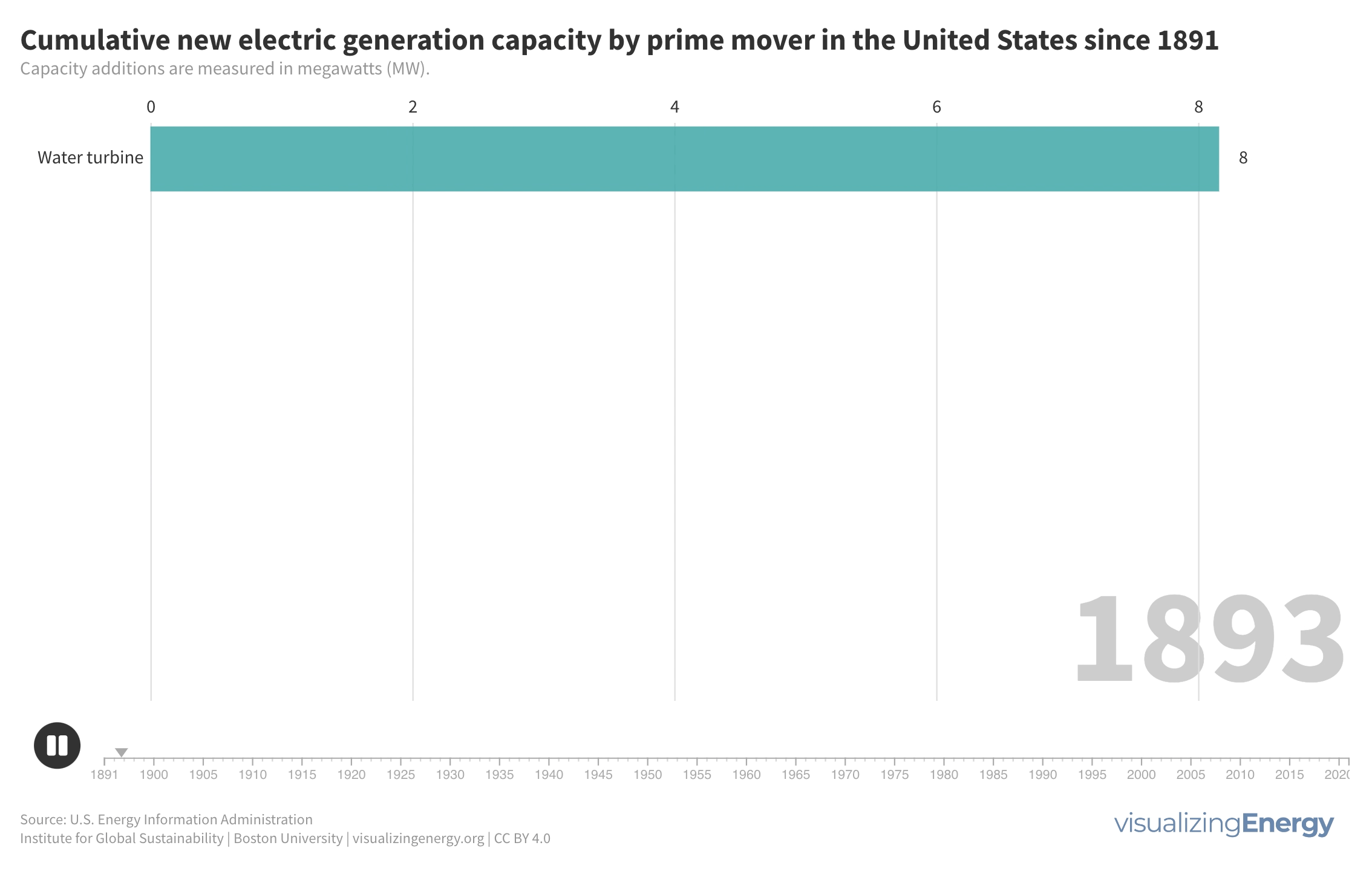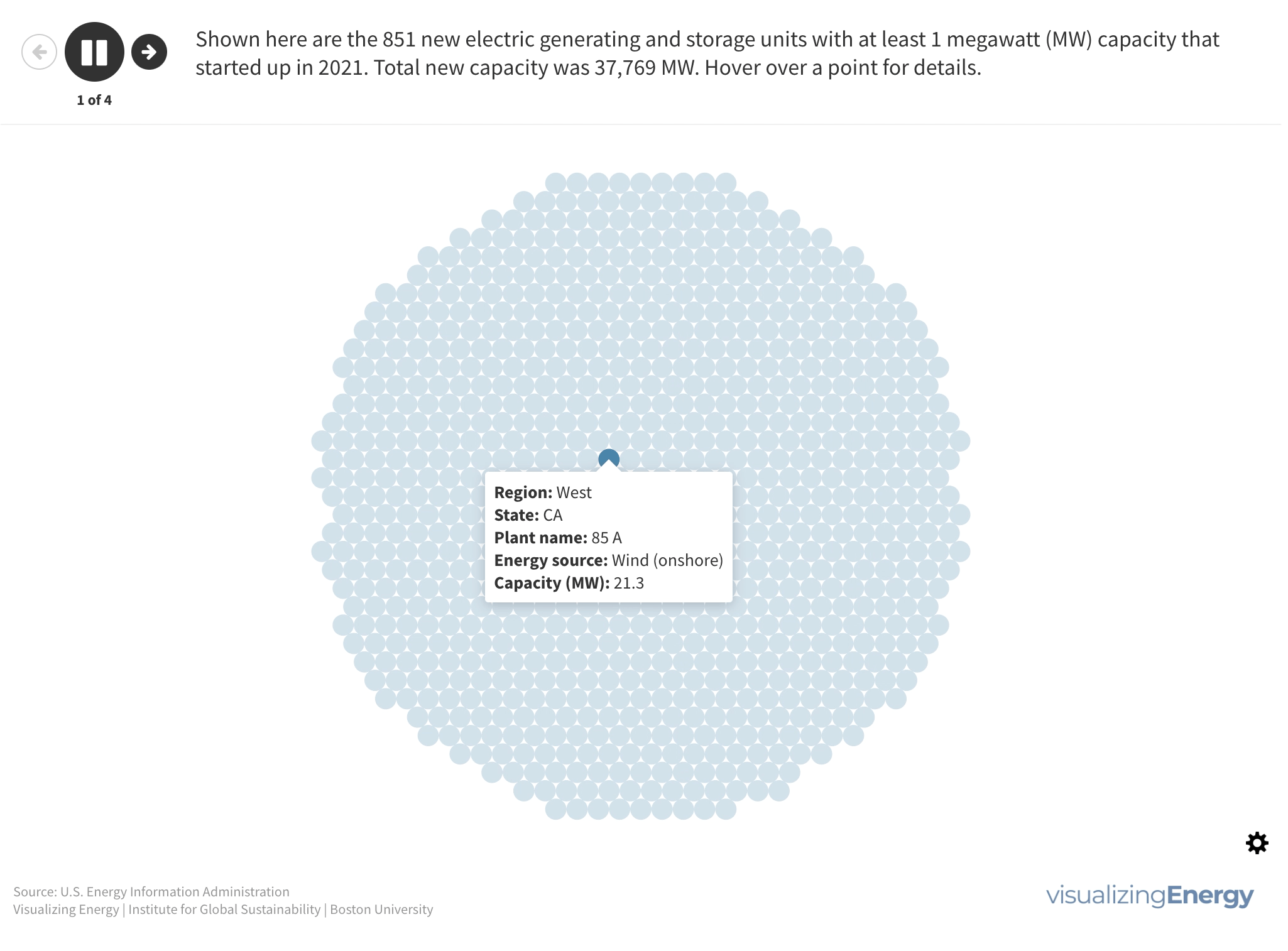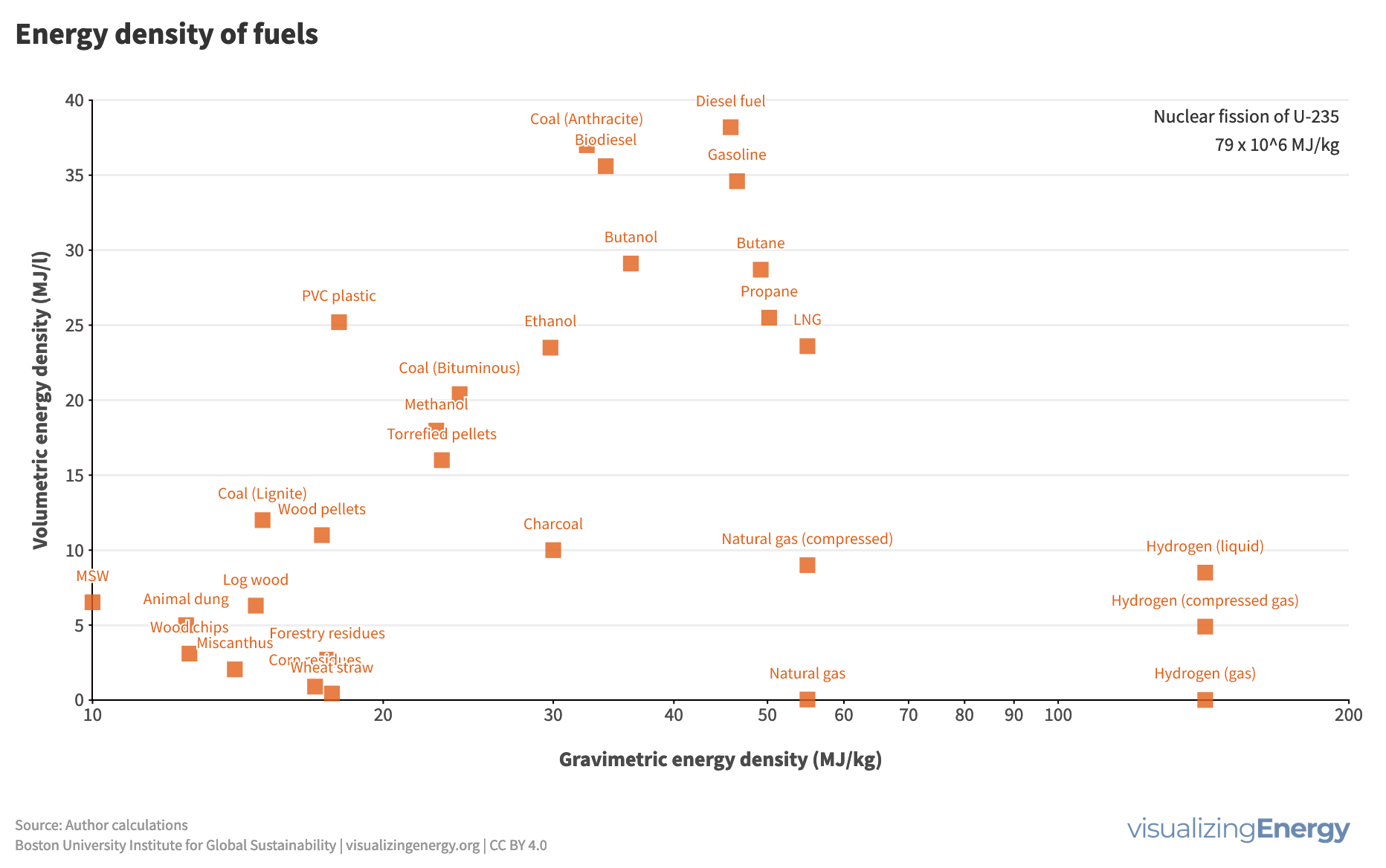
Fuel energy density: What is it and why is it important?
Fuels like wood, diesel, and natural gas have shaped human energy history, driven by technological, economic, and environmental forces. Liquid fuels from oil, with their high mass and volumetric energy density, led to their supremacy in transportation. Shifts in fuel types also influence the devices that convert them into energy services.

